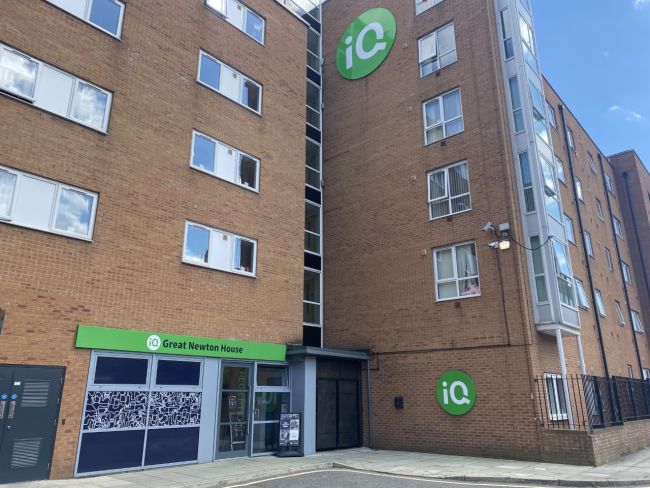Pride month: Inspiring members of the LGBTQI+ community
In 2023 we want to celebrate the power of unity and togetherness through the symbol of the rainbow.
The first Pride parade was held in June 1970, on the one-year anniversary of the Stonewall Riots, and 53 years on, we continue to stand in solidarity with the notion that just because something is the status quo today, doesn't mean it will be tomorrow.
As Pride month kicks off around the world, we're taking a look at some of the most impactful contributions to science, entrepreneurship and activism from the LGBTQI+ community to help share their stories and remind the world that genius is universal.
Marsha P. Johnson
The history of the modern LGBTQI+ movement is full of icons. Marsha P Johnson is one of them – an African American transgender woman who spearheaded the Stonewall Uprising in New York City - one of the most pivotal moments in history for the Gay Rights Movement.
As well as battling for gay rights, Marsha also founded one of the USA’s first safe areas for transgender and homeless youth, STAR, whilst advocating on behalf of sex workers and people with HIV and AIDS.
"No pride for some of us without liberation for all of us".
Johnson pushed past her own struggles of poverty, mental illness and HIV, and through decades-long work, secured basic civil rights for the LGBT community that is still prevalent today.
The trans icon, activist and drag queen died ‘mysteriously’ in 1992.
Alan Turing
The gay community has a long history of contributions to science and technology, but even now in 2023, more than 40% of scientists remain closeted at work. Alan Turing was one of these, and as biographer Andrew Hodges wrote, 'a founder of computer science, mathematician, philosopher, codebreaker, and a gay man before his time'.
"Sometimes it is the people no one can imagine anything of who do the things no one can imagine".
During the Second World War, he worked helping to create and build the machine which broke previously uncrackable enigma codes, used by the Nazis. His creation of the first ever computer helped to bring an end to WWII two years early – saving countless lives.
After being chemically castrated by order of a British court as punishment for being gay, Turing died by suicide in 1954. He received a royal pardon, posthumously, in 2013.
Sally Ride
In her lifetime, Sally Ride became famous for being NASA’s first woman astronaut, going into space in 1983. In her death, she added to this by being the first acknowledged gay astronaut.
Although married to her husband until the 1980s, by the time of her death in 2012, Sally Ride had been in a 27-year relationship with her female partner – author, Tam O’Shaughnessy.
"The stars don't look bigger, but they do look brighter".
Many hope that Sally Ride's subtle way of coming out, in her obituary, will inspire greater acceptance and acknowledgment of the LGBTQI+ contribution to the space effort.
Leonardo da Vinci
Last but not least, Leonardo da Vinci. More than 500 years ago – whether it be through studies of human anatomy, astronomy or geology – this eccentric inventor merged science and art to shape humanity the way we see it today.
Creator of the Last Supper and The Mona Lisa, Leonardo lived as one of the most ambitious artists in history.
"Learning never exhausts the mind".
He is also known for being openly gay, but due to his connections in society, the possible legal punishments – exile, public humiliation, burning at the stake – fortunately escaped Leonardo, who died in his late 60s of a stroke.
And the list could go on and on! At iQ, we will continue to acknowledge and support the wealth of talent and leadership shown by LGBTQI+ members, both past and present, and hope these celebrations will continue beyond Pride Month.
Search
Location inspiration
If you're not sure where you're heading yet, take a look around our properties in all corners of the UK.

Great Newton House, Liverpool

Shoreditch, London